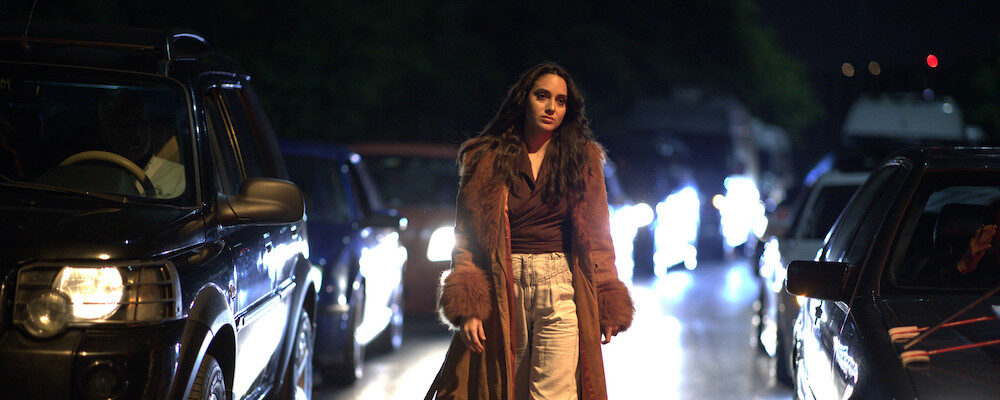In Maryam Keshavarz’s ‘The Persian Version,’ an Iranian American Woman Looks to the Past To Understand Her Present
Sandra Miska
A young NYC filmmaker looks into the past to better understand her immigrant mother in “The Persian Version,” a funny and moving film about how deeply generational trauma can affect a person, even if they do not know the full story. As the only daughter in a family of nine children in an Iranian American household, there is a lot of pressure put on the shoulders of Leila Jamshidpour (Layla Mohammadi). After her father Ali Reza (Bijan Daneshmand) has a heart transplant, she finds herself forced to confront her fractured relationship with her family, particularly her mother, Shireen (Niousha Noor).
Although Shireen and Ali Reza, a doctor, first immigrated to Brooklyn with their first two sons in 1967, before Leila was born, she often traveled back and forth with Shireen, even after the Iranian Revolution. Because of this, young Leila (Chiara Stella), often found herself caught between two worlds. Writer-director Maryam Keshavarz taps into something many first generation Americans experience, as Leila faces discrimination by her American peers, while also being treated as an outsider in her parents’ country. Still, she has a relatively happy childhood and finds joy in listening to American pop music, even smuggling cassettes to Iran. She comes to draw parallels between the fraught relationship between the U.S. and Iran with what her relationship with her parents eventually becomes.
Even by American standards, Leila lives an unconventional life, as she marries a woman, Elena (Mia Foo), and after that union falls apart, she has a brief fling with a man, Brit actor Maximilian (Tom Byrne), that results in a pregnancy. She has two masters degrees, but is still considered a black sheep in her family and is lumped in with her addict brother, Vahid (Parsa Kaffash). Her relation with Shireen, a devout Muslim, reaches a breaking point after she refuses to accept Leila’s relationship with Elena and kicks the couple out of Thanksgiving dinner.
Shireen’s own backstory is even more compelling than her daughter’s. After Ali Reza’s first health scare, she earns her GED and real estate license, embarking on a high-powered career selling property to mostly other immigrants. Her success is made even more remarkable by the fact she was forced to drop out of school to marry at age 13. Leila has always wondered about the scandal her grandmother, Mamanjoon (Bella Warda, Sachli Gholamalizad), has alluded to, and the older woman finally spills the whole sorted and heartbreaking story. In the flashback to 1960s pre-revolution Iran, Shireen is played brilliantly by Kamand Shafieisabet, and we see an epic story of a young girl forced to mature and make adult decisions at the age most young people today are still in middle school.
Keshavarz does not push too hard to wrap the story up neatly with a bow. We get the impression that Leila and Shireen will always have their differences, but learning about her mother’s past, as traumatic as it was, comes off a cathartic experience for Leila and the viewer, as the hero is finally finding the last missing piece to make sense of her life. Becoming a mother herself also helps Leila better relate to her own mother, as trite that sounds, but it feels very natural here. The only weakness in the film is that Keshavarz does not dive deeper into Vahid, a key character whose wedding coincides with the birth of Leila’s child.
“The Persian Version” releases Oct. 20 in New York and Los Angeles, and expands Nov. 3 to select theaters nationwide.

